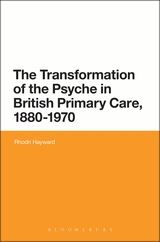With the rise of the ‘science of empathy’ in the wake of the discovery of mirror neurons, we have seen a veritable return to biology, ethology, neuroscience, genetics and various evolutionary theories to explain not only empathic circuits of feeling within the human body, but also the emotional politics of contemporary societies internationally.
This paper grapples with the implications of the multiple layers of translation involved in politicising the science of empathy. Through a critical reading of the leading primatologist Frans de Waal’s bestselling book, The Age of Empathy (2010), I explore how the translation of scholarly scientific research on empathy into the language of popular science often involves establishing links between the biological workings of the individual organism and the health of the body politic.
In making such analogies, these translations posit homeostasis and equilibrium not only as necessary for the optimum functioning of the individual body, but also as vital to the flourishing of the social body – a move which, I contend, frequently works in the interests of maintaining the neoliberal status quo and the social and geo-political hierarchies and exclusions that underscore it.
While authors like de Waal aim to keep biology separate from ideology, culture and politics, their own scientific claims work to support a political vision premised on a version of empathy that correlates with neoliberal capitalism’s demand for an enterprising and emotionally adaptable citizenry animated by self-interest and self-responsibility. As the paper argues, however, this is not the only possible or plausible translation of science of empathy.
In this vein, I explore how the circuits of feeling de Waal describes might be interpreted in ways that contest, rather than uphold, biological essentialism and disrupt, instead of solidify, the oppressive logics of contemporary forms of neoliberal governmentality to develop what Elizabeth A. Wilson refers to as ‘a critically empathic alliance with neurology’. Indeed, when read against the grain, particular strands of contemporary neuroscience and ethology might productively complement critical cultural, political and psychoanalytic analyses of emotion and affect, contributing to a framework for conceptualising affective translation that is critically attuned to the links between empathy, materiality and power transnationally.
Dr Carolyn Pedwell is Senior Lecturer in Cultural Studies/Cultural Sociology at the University of Kent. You can see a video of Carolyn speaking about her book on empathy, Affective Relations: The Transnational Politics of Empathy, here.
See also Carolyn’s post on this subject on the History of Emotions Blog.
